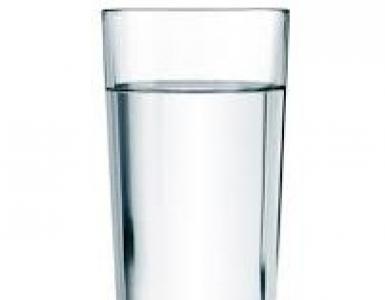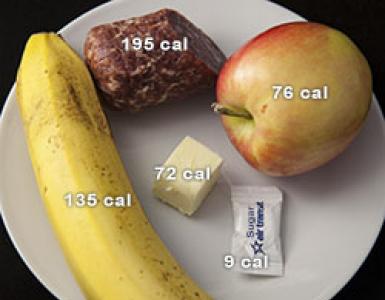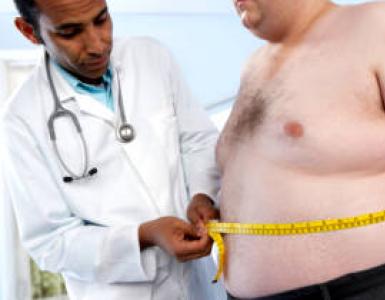How to eat properly with sports loads. Proper nutrition during exercise
Recently, everyone talks about the need for physical activity to maintain health and treat many chronic diseases. You can hear about it on TV, from a doctor, from magazines, newspapers, and just going out on the street in the morning or evening is not difficult to notice committing to your day's walking or jogging.
Proper nutrition before and after physical exertion is no less important than the fact of physical activity. The success of burning fat, improving metabolism, or building muscle during exercise is largely dependent on what and when you ate before and after your workout. And to starve before training or after not only is not useful, but also harmful.
Before training
If you are going to get up early and have a little exercise, walk or jog before going to work, there usually is not time to learn a full-fledged full breakfast, but you still need to eat. It is important to remember that whatever the goal of the morning exercise: weight loss, normalization of blood sugar in diabetics, muscle building, just a walk to raise the mood, without breakfast, the body after 8-10 hours fasting, simply can not extract from the training desired result. By skipping breakfast, your body will burn a lot less calories during exercise than it would if you had breakfast.
Breakfast can be easy - fruit, dried fruits or a glass of yogurt no later than 20 - 30 minutes before training. Doing sports in the afternoon, it is recommended to have dinner about one and a half hours before the workout. Lunch can consist of a salad and a sandwich with egg, tuna, brisket or pastrama. After a more dense dinner, it is recommended to wait about 3 hours before exercising.
Food intake before sports should include complex carbohydrates such as: whole, cereal or rye bread, different types of cereals, vermicelli or potatoes in combination with protein such as: meat, fish, dairy products, eggs and of course vegetables.
It is advisable to refrain from using before eating a high-calorie meal with a high sugar content. This food is quickly absorbed, but the glucose present in it too quickly increases blood sugar levels and then the sugar level also falls quickly, leaving an acute sense of hunger and fatigue.
Complex carbohydrates provide a slow steady flow of glucose into the blood, which supports the long and productive work of muscles and heart.
During training
During training it is recommended to drink water or unsweetened tea. To drink it is necessary. According to recent studies, a sufficient amount of water in the body stimulates normal metabolism. Observing the correct diet, fat burning during exercise will be optimal.
After training
No less important is what you eat after your workout. Needless to say, if on the way home from the gym or evening walk you buy yourself a dose of ice cream or burekas containing a large amount of fat, then all your efforts almost immediately come to naught. Metabolism remains elevated 1-2 hours after exercise, warmed muscles simply require fuel.
After training, the so-called training (anabolic) window for the consumption of proteins and carbohydrates (but not fats) is open in the body. All that will be eaten during this period, will go to the restoration of muscles and the growth of muscle mass. By taking the right food after exercise, you will help the body to accumulate muscle mass in return for fat.
The first thing your body needs after physical exertion is amino acids, a protein building material for muscles, hormones, nerves, etc. Increased physical activity depletes the reserve of essential amino acids, and you must fill it. This implies meat, poultry, fish, eggs, dairy products or vegetable proteins (soy). The second thing your body needs is a little complex carbohydrates to make up for the deficiency of glycogen in the liver, such as bread (coarse grinding), cereals, corn flakes. Do not forget to drink enough water before and after exercise.
Remember that if your task is to get the most effect with minimum costs, eat the right food before and after the physical exertion and the result will not slow down!
Everyone who has ever been in sports knows that intense physical exertion quickly exhausts the body, and therefore requires a different approach to nutrition from the athlete. Therefore, proper nutrition during exercise should include food containing a sufficient amount of nutrients and contain carbohydrates, fats, proteins, vitamins, fiber, salt ...
Without this, no athlete can withstand sustained loads, and therefore those who lead a sport lifestyle or seriously engage in sports, in order to achieve high results, you need to select the appropriate nutrition for these classes.
At the present time, methodical recommendations have already been developed, in which practical advice is given on the nutrition of athletes with different loads in sports. Depending on the energy consumption, all major sports can be divided into five groups:
2) Where there is high-speed exercise
3) Sports, containing volumetric constant loads
4) Including lengthy physical activities
5) Where there is space for prolonged physical exertion in stressful situations (that is, in training or competition).
As you can already understand, a diet for exercise should be selected individually in each case. But there are several rules, observance of which will benefit everyone. First, you need to reduce the salt and complex carbohydrates in your diet, replace them with fructose and easily digestible carbohydrates. Then maximize the intake of food containing protein and balance the consumption of minerals and vitamins.
Time of food intake. Remember that you can not eat food directly before and during exercise, because while it is poorly digested, worsens your well-being.
Take food should be at least an hour before training, or two hours after its end.
Often the athletes with great physical exertion completely lose appetite. If this happens, enter into the diet products containing a large number of carbohydrates. By the way, simple carbohydrates (jam, juices, honey, fruits) quickly transfer their energy to the body, so they are best used before training.
After exercise, it is better to eat oatmeal cookies, pasta, oranges or grapes. If the physical activity is intense, then you will need six meals a day, with vegetables and fruits in it should be at least 10%. Keep in mind that it is very important to observe the chosen diet under exercise. To replenish vitamins and minerals, your diet should be as varied as possible.
The body is constantly losing protein, in addition, it is needed for tissue renewal. Therefore, competent nutrition during physical exertion should ensure the receipt of a minimal, but necessary amount of proteins. Fortunately, they are contained in both plant and animal food. Keep in mind that if you completely replenish the lost energy, but do not consume protein foods, then you risk getting a fast wear out of the body.
It is known that when there is a lack of protein in the food, the body loses about 15 grams a day daily because of this. So if your lifestyle includes regular exercise, then you need a protein of animal origin.
In addition to replenishing energy, one must also think about its accumulation in the body. To do this, a few days before intensive workings, you need to start fully rest and eat food with a high carbohydrate content. You can not load yourself these days. Only light walks are allowed, as well as taking multivitamins and a lot of liquid. After that, you will be fully prepared for significant physical stress.
For the proper course of the processes in the body, it is important to drink a sufficient amount of liquid. You should know that if your body loses 1% of water - you feel thirsty, 3% - endurance decreases, 5% - a state of apathy appears. At a temperature of 27 degrees and intensive exercise, your body loses about two liters of water per hour.
The water is absorbed no faster than one liter per hour, so before serious physical exertion you should drink half a liter of water ahead of time. Sweet water is not recommended to drink, as it causes even more thirst. There are special hydrocarbon-mineral drinks that will be effective if you plan to load yourself more than 45 minutes. They contain lemon juice, honey, vitamins and minerals.
In conclusion, I will clarify that intensive physical loads carry energy costs of 500-700 kilocalories per hour and they should be compensated in time.
A special role is played by human nutrition in active physical activities, in particular, in sports. With active physical exertion, the human body needs an increased amount of nutrients to make up for energy and plastic costs.
Meals should be formed according to the individual program for each person. Regularity, time and intensity of training, nutrition, fluid balance in the body- these are the main points that need to be determined before the start of training.
Intensive physical activity is accompanied by increased demand in the protein. Proteins are the building material for muscles. A high level of protein nutrition positively affects the overall performance, raising it, as well as reducing fatigue and the most rapid recovery of strength and performance. The recommended amount of protein in the athlete's diet should be at least 2 g-2.5 g per 1 kg of body weight.
The danger of fatty infiltration of the liver in athletes with prolonged and intensive loads makes it necessary to attach special importance to the intake of lipotropic substances in the diet, which are contained in proteins of animal origin, such as eggs, cottage cheese and other milk products, liver, veal , low-fat lamb, rabbit meat, poultry, fish (cod, pike perch, etc.).
But this does not mean that the amount of proteins should cover the number of carbohydrates in the diet. Whatever sport you are involved in, the amount of carbohydrates should be at least 2 times the amount of proteins.
Carbohydrates are the main source of energy for the body. When we do not have enough carbohydrates, the body has no elementary forces to ensure that the building material is delivered to the cells. Therefore, carbohydrates in no case can not be ignored.
It should be remembered that carbohydrates are digested at different rates: simple carbohydrates (fruits, juices, jam, honey) give their energy more quickly. They quickly raise the level of sugar in the blood (high glycemia index). It is better to use them before classes.
Immediately after physical exertion, it is reasonable to choose products with an average index of glycemia (grapes, orange, oatmeal cookies, pasta from deli).
Products with a low glycemic index should be consumed even later. These include: milk, yogurt, apples, plums, legumes.
The same applies to fats. Fats are the second most important source of energy after carbohydrates. Therefore, a small amount of fat in the diet of a physically active person should always be present. Preference is given to polyunsaturated fatty acids, contained in nuts, fish, vegetable oils.
Particular attention should be paid to the time of eating, and the beginning of the classes. At high physical loads it is recommended to eat at least 4 times a day. The intervals between meals should not exceed 5 hours. Immediately before a sports job, food should not be eaten. During the competition, meals should be taken 3.5 hours before the start of the competition. It is not allowed to perform intensive training on an empty stomach. Take food can not be earlier than 15-20 minutes after the end of training. The daily calorie content of the diet is distributed according to meals in the following ratios: breakfast 30-35%, lunch 35-40%, half-dnyk 5%, dinner 25-30% in the morning hours of training and in the evening hours of training : breakfast-35-40%, lunch-30-35%, afternoon snack-5%, dinner-25-30%.
In the days of training, lunch and breakfast should be high in calories, but at the same time the volume of food should not be large. Be sure to do pereku-sy, the body must make up the calories, vitamins and minerals.
It is also important to monitor the intake of fluid. With an intensive loss of 1% of water, thirst appears, 3% - endurance decreases, 5% - apathy appears. With a heavy load, the body loses up to 2 liters per hour at a temperature of 25 degrees. Assimilation of water is possible not more than 1 liter per hour. Therefore, with large physical exertion, pre-drink half a liter of liquid. Do not drink sweet drinks; they cause thirst, you can - a solution of honey.
Drink in small portions and more often, and start drinking even if there is no thirst. At long loads, more than 45 minutes, it is recommended to drink carbohydrate and mineral drinks, which contain honey, lemon juice, minerals and vitamins.
In the process of intense muscle activity, free acids are accumulating in the body, changing the normal reaction of the body tissues towards acidity (acidotic shifts), thus reducing the endurance and stability of the organism at high physical loads. To prevent the development of acidotic shifts, it is possible to include foods rich in alkaline components in the food ration of the athlete: milk, vegetables and fruits.
Sports is also accompanied by an increased need for mineral substances: phosphorus (the need is increased by 1.5-2 times), magnesium, calcium, potassium, iron, sodium chloride. The source of phosphorus is all products of animal origin: meat, cottage cheese, eggs, etc. Phosphorus of plant products is poorly digested.
It's hard to believe, but a lot of physical activity is not an excuse to give up good old fats and carbohydrates in favor of protein foods. On the contrary, this is the reason to seriously reconsider your diet, diversifying it as much as possible. And add healthy and regular products to it. Those that are not only able to give strength and energy, but also will allow to do more and, as a result, to reach sports heights faster.
How to plan a diet for high physical activity
Proper nutrition allows the athlete gain muscle and burn fat, while remaining physically healthy and enduring (1). That is why his diet should be balanced and contain proteins, carbohydrates and fats in the right amounts. After all, each of these macrocells performs a certain function, namely:
- 1 Proteins - they form the basis of all diets, including diets for athletes. Simply because they are a building element for our body and like water are present in virtually all of its tissues, including bone, muscle and connective, and even in the blood. However, their share in the daily diet should not be more than 15-20%, otherwise muscle hypertrophy (the increase in muscle mass due to the increase in the area and size of muscle fibers, rather than their length) can not be avoided. The best sources of proteins are chicken breast, turkey, tuna, salmon, egg white, legumes, low-calorie cottage cheese.
- 2 Carbohydrates Are substances from which the body draws energy. It is thanks to them that there is an endurance and endurance. This is as follows: as a result of complex biochemical reactions carbohydrates are converted into glycogen . This is a kind of energy reserve, which accumulates in the muscles in order to be released during the next training and hard muscular work, allowing the person to be engaged more intensively. It is interesting that the more he trains, the more glycogen his muscles store. In the diet of an athlete carbohydrates should be 55-60% of the total mass of food. You can get them by using products of vegetable origin - cereals or cereals.
- 3 Fats - provide the body with additional energy and prevent the development of cardiovascular diseases. They are contained mainly in vegetable oils - olive or sunflower, and fish oil , nuts and seeds (1).
Vitamins and trace elements
In addition to macronutrients, athletes need vitamins and trace elements. Moreover, according to the representative of the Academy of Nutrition and Dietology Kelly L. Pritchett, "during moderate and intensive training, the loss of certain minerals mainly through sweat increases." Therefore, the body needs to accumulate all the time. These are the following substances:
- Vitamins of group B. The first sign of their deficiency is a lack of energy for the last call. This is explained by the fact that it is with their help that our body transforms protein and sugar into energy and synthesizes erythrocytes. The data are confirmed by the results of the studies. Contain these substances in tuna, legumes and nuts.
- Calcium - Together with vitamin D, potassium and protein, this microelement is responsible for the density of bone tissue, as well as the strength of the skeleton. It is found in dairy products, dark green leafy vegetables and legumes.
- Vitamin C - not many people know that it is capable not only of increasing immunity, but also preventing the appearance of dyspnea during and after exercise. This is confirmed by the results of studies conducted at the University of Helsinki in Finland. It is found in citrus, dog rose, sweet pepper, strawberries and cabbage.
- Vitamin D - Improves mood and adds strength. And these are not just words, but the results of studies conducted at the British University of Newcastle under the leadership of Akasha Xinyi. The mechanism of its effect is simple: vitamin D promotes the activation of mitochondria, which are in the muscle fibers. As a consequence, the muscle tone rises and the person feels more active. You can replenish the reserves of this vitamin, basking in the sunlight or eating dairy products, fish and egg yolk.
- Vitamin E - a powerful antioxidant, which increases immunity and protects against many diseases. Contained in seeds, nuts and vegetable oils.
- Iron - Without it, the muscles can not work at full strength. Simply because they will not receive oxygen, which is carried by red blood cells synthesized just with its help. In addition, iron deficiency leads to anemia and, as a result, increased fatigue and fatigue. Contains this trace element in beef, spinach, eggs, cabbage and green apples.
- Magnesium - It increases the density of bone tissue, thereby protecting the athlete from fractures during intense training. In addition, according to Kelly Pritchett, "magnesium activates over 300 enzymes involved in energy metabolism." They are rich in dark green leafy vegetables, fish, nuts (2).
- Potassium - the most important microelement, which provides the work of the nervous and muscular systems and is contained in bananas. That's why the latter prefer sportsmen after long-distance races. Just to relieve muscle pains and cramps calf muscles.
Top-17 products in heavy physical exertion
In order not to overload the body and always be in good shape, it is necessary to eat a fraction, but often. Ideally, there should be 5-6 meals a day and a maximum of useful foods and drinks in the diet. There are only 17:
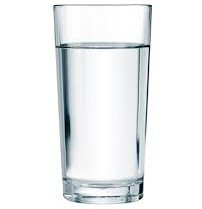 Water - it is necessary to drink it not only before or after, but also during training. Simply because it increases efficiency and prevents the occurrence of injuries. The amount of water consumed depends on their duration and intensity. In some cases it is useful to drink sports drinks (1).
Water - it is necessary to drink it not only before or after, but also during training. Simply because it increases efficiency and prevents the occurrence of injuries. The amount of water consumed depends on their duration and intensity. In some cases it is useful to drink sports drinks (1).
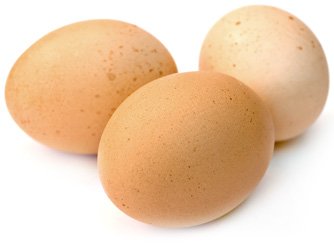 Eggs are a source of protein and vitamin D.
Eggs are a source of protein and vitamin D.
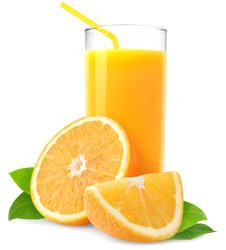 Orange juice - it contains not only vitamin C, but also potassium - one of the most important electrolytes responsible for water balance and helps to fill the lack of fluid in the body after training.
Orange juice - it contains not only vitamin C, but also potassium - one of the most important electrolytes responsible for water balance and helps to fill the lack of fluid in the body after training.
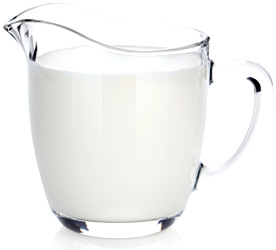 Kefir is a source of useful bacteria and proteins, which are necessary for the growth of muscle mass. Regular use of kefir helps purify the body and get rid of excess weight. To improve its taste, you can use oatmeal or fruit.
Kefir is a source of useful bacteria and proteins, which are necessary for the growth of muscle mass. Regular use of kefir helps purify the body and get rid of excess weight. To improve its taste, you can use oatmeal or fruit.
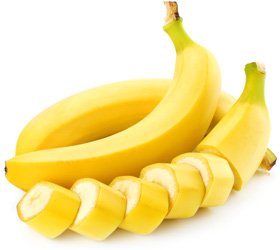 Bananas are a source of carbohydrates that help restore glycogen levels and potassium.
Bananas are a source of carbohydrates that help restore glycogen levels and potassium.
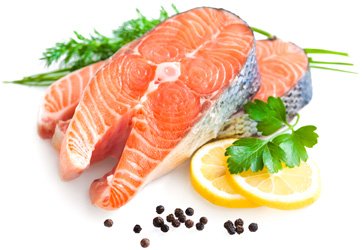 Salmon is a source of protein and fatty acids omega-3 , having anti-inflammatory properties. The product allows not only to increase muscle mass, but also to improve the performance of training.
Salmon is a source of protein and fatty acids omega-3 , having anti-inflammatory properties. The product allows not only to increase muscle mass, but also to improve the performance of training.
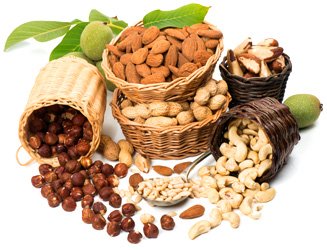 Nuts and dried fruits are an ideal snack with carbohydrates, proteins and healthy fats, as well as vitamins and trace elements in its composition. It allows you to quickly restore strength and helps build muscle.
Nuts and dried fruits are an ideal snack with carbohydrates, proteins and healthy fats, as well as vitamins and trace elements in its composition. It allows you to quickly restore strength and helps build muscle.
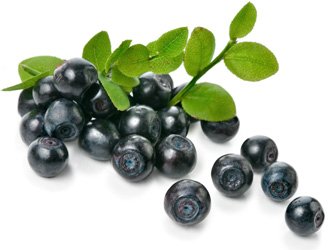 Blueberries - source antioxidants , capable of tripling the speed of recovery after intensive training.
Blueberries - source antioxidants , capable of tripling the speed of recovery after intensive training.
![]() Pineapple is a source of bromelain, a substance that possesses anti-inflammatory properties and contributes to the prompt treatment of dislocations, bruises and edema. In addition, it contains vitamin C, which is necessary for rapid tissue repair.
Pineapple is a source of bromelain, a substance that possesses anti-inflammatory properties and contributes to the prompt treatment of dislocations, bruises and edema. In addition, it contains vitamin C, which is necessary for rapid tissue repair.
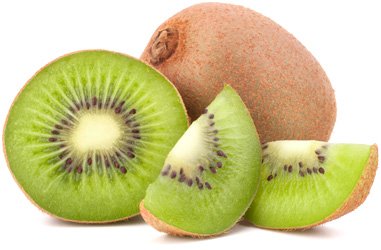 Kiwi is a source of vitamin C, antioxidants and potassium, which help to effectively combat muscle pain after exercise (3).
Kiwi is a source of vitamin C, antioxidants and potassium, which help to effectively combat muscle pain after exercise (3).
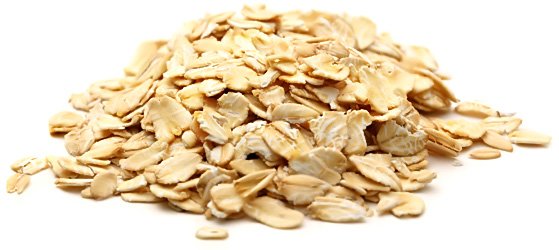 Oatmeal is a storehouse of nutrients and complex carbohydrates, providing an optimal level of sugar in the blood and charging energy for new achievements.
Oatmeal is a storehouse of nutrients and complex carbohydrates, providing an optimal level of sugar in the blood and charging energy for new achievements.
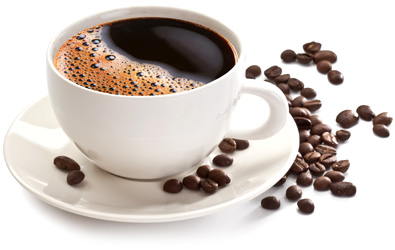 Coffee is hard to believe, but it is caffeine that can increase stamina and reduce muscle pain during and after intense training, as evidenced by research conducted in 2009 at the University of Illinois at Urbana-Champaign. The main thing is not to abuse it.
Coffee is hard to believe, but it is caffeine that can increase stamina and reduce muscle pain during and after intense training, as evidenced by research conducted in 2009 at the University of Illinois at Urbana-Champaign. The main thing is not to abuse it.
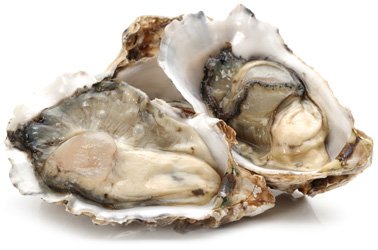 Oysters - they enrich the body with zinc and iron and, as a result, provide the energy necessary for intensive training.
Oysters - they enrich the body with zinc and iron and, as a result, provide the energy necessary for intensive training.
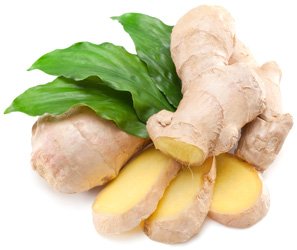 Ginger - it contains unique substances that have anti-inflammatory properties and effectively relieve muscle pain.
Ginger - it contains unique substances that have anti-inflammatory properties and effectively relieve muscle pain.


